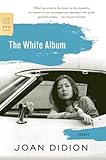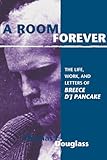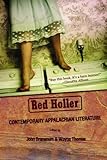 “A place belongs forever to whoever claims it hardest, remembers it most obsessively, wrenches it from itself, shapes it, renders it, loves it so radically that he remakes it in his own image.” Kentuckian Chris Offutt chose that line from Joan Didion’s The White Album as the epigraph for his memoir, No Heroes: A Memoir of Coming Home. Appalachian literature plays an elegaic refrain. It is a literature of dislocation and transition and survival. Ron Rash, echoing Offutt, reflects how everybody who lived on the two-mile dirt road that led to his grandmother’s farm was either family or friend. Now, “I probably know three families out of 60 or 70. And that place is gone. The accent’s gone. A lot of the culture is disappearing.”
“A place belongs forever to whoever claims it hardest, remembers it most obsessively, wrenches it from itself, shapes it, renders it, loves it so radically that he remakes it in his own image.” Kentuckian Chris Offutt chose that line from Joan Didion’s The White Album as the epigraph for his memoir, No Heroes: A Memoir of Coming Home. Appalachian literature plays an elegaic refrain. It is a literature of dislocation and transition and survival. Ron Rash, echoing Offutt, reflects how everybody who lived on the two-mile dirt road that led to his grandmother’s farm was either family or friend. Now, “I probably know three families out of 60 or 70. And that place is gone. The accent’s gone. A lot of the culture is disappearing.”
Rash and Offutt hesitate to sentimentalize that passing world, but the pull is inescapable. As Rash says, “there’s something in us as human beings that–we know our lives are transitory, but we want something not to be transitory, something to endure, whether it’s a landscape or a place.” Rash’s poem “Preserves” is a concise dramatization of that process. After a funeral, the dead’s land and property are divided among kin, but the narrator has forgotten a springhouse. He opens the rotting door and he finds “woodslats bowed with berry and vegetable.” The double meaning of the poem’s title is less meant to be clever than funereal, as the family “heaped our paper plates and ate, one chair / closest to the stove unfilled.”

 Later this year, Rash’s novel Serena gets the full Hollywood treatment. Jennifer Lawrence and Bradley Cooper will likely send more readers back to his work, including his newest release, Above the Waterfall. For many readers, the life and fiction of Breece D’J Pancake still haunts the discussion of Appalachian literature. Pancake killed himself in 1979 at 27-years-old, and his rough but lyric tales have made him a martyr. Jon Michaud’s recent retrospective at The New Yorker is a fitting tribute. He recommends Thomas E. Douglass’s biography, A Room Forever, and Samantha Hunt’s essay “The Secret Handshake,” which appeared in The Believer. I would add Marion Field’s touching “Complicated Manners” from the Oxford American. But start with the man’s fiction; my favorites are “The Way It Has To Be” and “Time and Again.”
Later this year, Rash’s novel Serena gets the full Hollywood treatment. Jennifer Lawrence and Bradley Cooper will likely send more readers back to his work, including his newest release, Above the Waterfall. For many readers, the life and fiction of Breece D’J Pancake still haunts the discussion of Appalachian literature. Pancake killed himself in 1979 at 27-years-old, and his rough but lyric tales have made him a martyr. Jon Michaud’s recent retrospective at The New Yorker is a fitting tribute. He recommends Thomas E. Douglass’s biography, A Room Forever, and Samantha Hunt’s essay “The Secret Handshake,” which appeared in The Believer. I would add Marion Field’s touching “Complicated Manners” from the Oxford American. But start with the man’s fiction; my favorites are “The Way It Has To Be” and “Time and Again.”

 It would be foolish to deny Pancake’s literary influence on how we speak about literary Appalachia. The parallel nature of his passionate but short life, his brief output (he only published enough stories to fill one book), and the crafted compression of his tales make him almost too perfect of a symbol. During a review of Rusty Barnes’s story collection, Mostly Redneck, I positively compared Barnes to Pancake, noting that both writers used finely crafted settings to add gravity to the minutia of their characters’ lives. In an interview, Barnes pushed back against my comparison, citing a frustration with reviewers using Pancake as metonym for Appalachian literature. While that certainly wasn’t my intention, I welcome his excellent list of other noteworthy contemporaries from the region: Nikki Finney, Frank X. Walker, Lee Smith, Lisa Koger, Maurice Manning, Silas House, James Still, Crystal Wilkinson, Charles Dodd White, Gurney Norman, Denise Giardina, Mark Powell, Pinckney Benedict, and Chris Offutt. Readers should get Red Holler: Contemporary Appalachian Literature, edited by John Branscum and Wayne Thomas, or issues of Appalachian Heritage, Still, and Appalachian Journal to see the newest work coming from Appalachia. Countless others could be added to Barnes’s list, including Harry Humes, Jayne Anne Phillips, Tom Bailey, the late Irene McKinney, Ann Pancake, RT Smith, Fred Chappell, Joseph Bathanti, and Scott McClanahan, whose memoir, Crapalachia, is a self-admitted yarn. “God bless those who keep trying to make myths,” he writes.
It would be foolish to deny Pancake’s literary influence on how we speak about literary Appalachia. The parallel nature of his passionate but short life, his brief output (he only published enough stories to fill one book), and the crafted compression of his tales make him almost too perfect of a symbol. During a review of Rusty Barnes’s story collection, Mostly Redneck, I positively compared Barnes to Pancake, noting that both writers used finely crafted settings to add gravity to the minutia of their characters’ lives. In an interview, Barnes pushed back against my comparison, citing a frustration with reviewers using Pancake as metonym for Appalachian literature. While that certainly wasn’t my intention, I welcome his excellent list of other noteworthy contemporaries from the region: Nikki Finney, Frank X. Walker, Lee Smith, Lisa Koger, Maurice Manning, Silas House, James Still, Crystal Wilkinson, Charles Dodd White, Gurney Norman, Denise Giardina, Mark Powell, Pinckney Benedict, and Chris Offutt. Readers should get Red Holler: Contemporary Appalachian Literature, edited by John Branscum and Wayne Thomas, or issues of Appalachian Heritage, Still, and Appalachian Journal to see the newest work coming from Appalachia. Countless others could be added to Barnes’s list, including Harry Humes, Jayne Anne Phillips, Tom Bailey, the late Irene McKinney, Ann Pancake, RT Smith, Fred Chappell, Joseph Bathanti, and Scott McClanahan, whose memoir, Crapalachia, is a self-admitted yarn. “God bless those who keep trying to make myths,” he writes.
 One of the finest mythmakers in contemporary Appalachian letters is Rose McLarney, a poet from western North Carolina. Although she now teaches in Oklahoma, while looking for her first teaching job back east, McLarney “was living without electricity, hiking 17 miles to use the phone or internet.” Her first book, The Always Broken Plates of Mountains, hits elegaic notes, as in poems like “Autumn Again,” where the sumac-stabbed hills create a beautiful color, but “this time of year, there is always / a wounded feeling.” Her first book was not provincial, but her newest release, Its Day Being Gone, widens her range.
One of the finest mythmakers in contemporary Appalachian letters is Rose McLarney, a poet from western North Carolina. Although she now teaches in Oklahoma, while looking for her first teaching job back east, McLarney “was living without electricity, hiking 17 miles to use the phone or internet.” Her first book, The Always Broken Plates of Mountains, hits elegaic notes, as in poems like “Autumn Again,” where the sumac-stabbed hills create a beautiful color, but “this time of year, there is always / a wounded feeling.” Her first book was not provincial, but her newest release, Its Day Being Gone, widens her range.
The book begins with violence. In “Facing North,” the narrator needs to put down a sick goat. “Silent animals” on the farm watch in judgment. She is not without guilt, wondering if she “should have given her southerly pasture,” and then cleverly turning the hesitance on herself, thinking “I should have gone in another direction.” Her threnody might seem archaic. After all, “In this era, when there is no need / to farm, who is drawn to have livestock, / which die so much?” Yet again, the narrator has used “animals / as the figures for my sorrows.” But she is “still here. / I can’t stay away / from the hard images.”
Those hard images, like the tenuous truths of McClanahan’s memoir, are no less painful if they are myths. Later in the collection, McLarney writes “much of what you grew up with had already faded– / there was less paint than rust on the metal, and littler / hope.” This tension between past and present, reality and hope moves the book forward. In “Shadow Cat,” the narrator walks a dirt road, thinking how the “houses on bits of flat / kept their backs to the walls / of mountains, knowing / their place.” The natural world reigns, and is untouched until higher up the mountain, where a man pulling a bulldozer whispered a warning: “Careful out here alone. / Big cat will get you.” She’s been hearing such admonitions her entire life, although few people have actually seen such animals. She wonders if the warnings are a comfort, “keeping alive the belief / that what wildness abides / out there is the danger.”
Dangerous, but it is their wildness, and the narrator of “Watershed” defends the local, “murky” waterways. She is not interested in clear water “filtered by mosses and lichens.” She wants an “ancient, worn landscape,” where she can swim over sunken cars. A certain level of toughness is expected. Someone who enters her house must be “unafraid / of stumbling on sagging floors, into low doorframes, features / of old structures, the past, people I know.”
Great books can be local, but Its Day Being Gone gains another dimension through the inclusion of McLarney’s chapbook, Hone Creek, originally published in Mudlark. The poems in this sequence dramatize the upheaval of South American communities from hydroelectric damming. “Imminent Domain” introduces the section. Although McLarney does not identify herself as an activist–“as much as [my poems] say what is wrong, [they] end up admitting my complicity”–these poems are written with anger. Although some of these engineers “meant well,” “Power always is sent to serve regions other / than where it is made.”
The disparate regions are also connected by methods of storytelling. McLarney’s narrators often smirk, as good yarn spinners do. “Setting,” a story about a thief and his lover, is told “because I want your attention. For you to come for dinner again.” These “bellyful tales,” told “when no one is hungry,” are variations on a theme:
No, there’s nothing new in it. But it couldn’t be richer.
What would you rather have than a thing you know
spiced and simmered, spoken and seconded,in another’s accent?
Its Day Being Gone is several books in one, and “Story with a Real Beast and a Little Blood in It” helps decode the synthesis. A bull breaks loose, and after the men, “butted and bruised / with rope-burned hands, give up,” the narrator makes a path of sweet feed that leads into a gated fence. But she pauses the poem to warn that we should “not look to make any allegories, / for any meaning beyond the marvel.” In Its Day Being Gone, McLarney has it both ways. Her stories are real, but they are symbols. Appalachia will remain, but it helps that the region has such skilled writers to document its truths and myths. McLarney’s poems contain enough eloquence to make a passing world permanent. Her work reminds us that when the bull ran, when the past began to fade, you “followed / on your knees down the mountain, noting / even in brambles, as you bled, the stars.”










